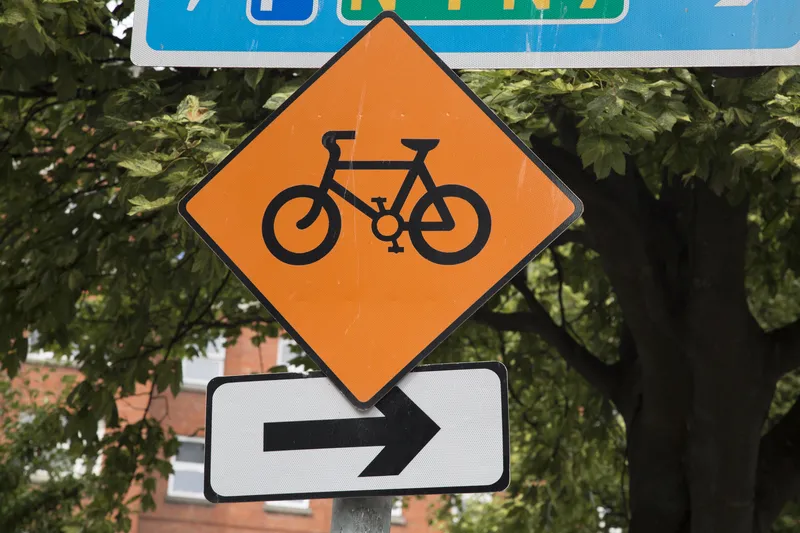
The Irish government has released its National Cycle Network plan outlining how 3,500km of cycle routes will criss-cross the country, serving around 2.8 million people.
Almost 90% of jobs and 80% of households in more than 200 villages, towns and cities as far north as Buncrana in County Donegal and as far south as Kinsale in County Cork are expected to be located within 5km of the network. There are 85 corridors of routes designed to integrate future and existing greenways and other cycling infrastructure, such as the Eurovelo routes.
According to the plan, released by Eamon Ryan, Ireland's minister of transport, the routes will also link to other transport hubs to ensure more comprehensive mobility for as many people as possible. The network will act as a "core spine" for Ireland’s towns and cities. Eamon also said that cycling infrastructure will be separate from motor traffic wherever possible.
The basic plan designates the urban network’s destinations as either primary, secondary or 'other' nodes.
Primary nodes are cities and large towns with populations of more than 20,000. These include Cork, Galway, Limerick, Bray, Portlaoise, Wicklow, Wexford, Letterkenny and Tralee.
Secondary nodes are towns with populations of 10,000 to 20,000, as well as major tourist attractions outside urban areas.
The ‘other’ nodes include small towns and settlements of fewer than 5,000 people, as well as educational and employment centres and transport hubs.
Around 400km of the network’s 3,500km are already in use while 900km of it are part of planned regional and national greenway programmes.
The remaining 2,200km will be new routes.
Delivery of the plan will be in three phases; the first is already under way. The second phase consisting of around 660km will be rolled out between 2026 and 2030, while the final 2,510km should be open between 2031 and 2040.
The government is hoping the cycling network will help it achieve its target of reducing transport emissions by 51% by 2030.
Ireland is already home to part of a Eurovelo route, the 11,000km EV1. It route runs from North Cape in northern Norway and hugs the North Sea and Atlantic Ocean coastlines of western Europe going as far south as Spain and Portugal.








